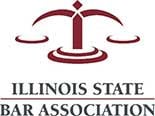One of the most important decisions you will make when creating your estate plan is deciding who will oversee the process of administering your estate in the future. You have the right to decide what happens to your property after your pass and your medical care in the event of incapacitation, as well as who distributes your property after your death. The person you appoint to do this is the executor of the estate.
The executor plays an important role, and it is critical to choose carefully when selecting the person to act in this capacity. If you do not choose a specific individual to be the executor, the probate court will appoint one for you. As you consider who you should choose, you will benefit from considering individuals who are comfortable with responsibility, willing to do the work and capable of doing tasks in a timely manner. It is also important to discuss this with the individual before including his or her name in your plan.
The role of the executor
The role and responsibility of the executor is the person who will oversee the distribution of your assets after your passing, as well as handling all remaining legal and financial matters associated with your estate. It can be an immense undertaking, and the specific tasks required will depend on the details of the individual situation. However, in most cases, the executor will do the following:
- Locate the will and file the appropriate paperwork with the probate court
- Notify creditors and other interested parties of the death
- Locate assets, secure them and assign an appropriate value to them
- Pay remaining debt associated with the estate
- File a final tax return
- Distribute assets to heirs and beneficiaries according to the terms of the will
It can be complicated to fulfill the requirements of the executor, especially if there are disputes among heirs and others about the terms of the will or what happens to estate property. This is why it is helpful to have professional guidance as one navigates these complex legal requirements and other issues. With assistance, the probate process will be easier, and it may be simpler to do what the court requires to settle remaining affairs and close the estate.



